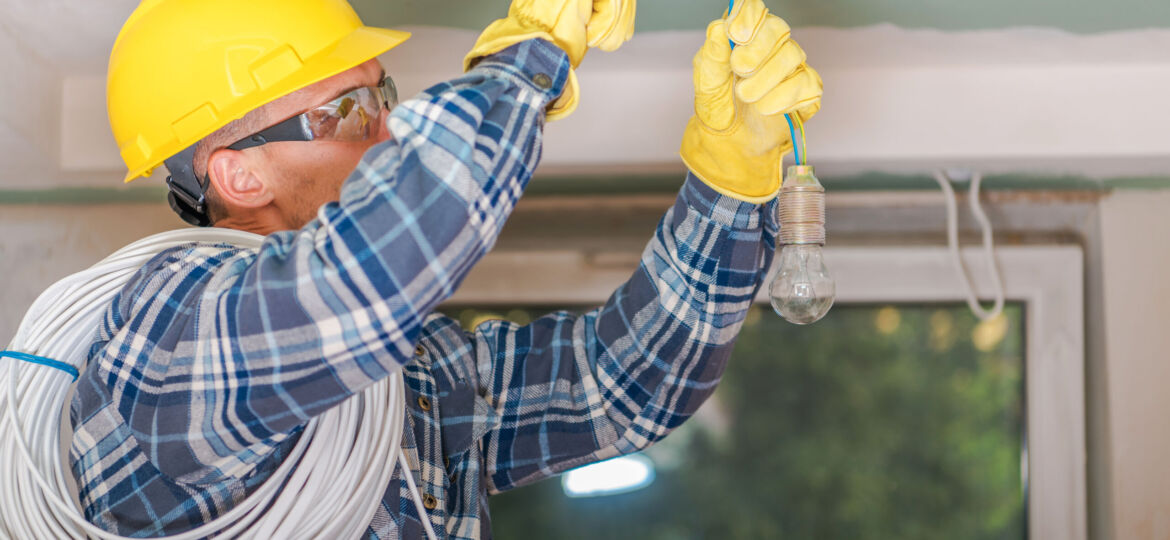
Proper electrical wiring is the backbone of any commercial establishment, ensuring the safe and efficient delivery of electricity to power all the devices and equipment necessary for daily operations. As a business owner or facility manager, it is crucial to have a basic understanding of commercial electrical wiring to ensure compliance with safety regulations and avoid potential hazards.
By understanding the key aspects of commercial electrical wiring, including its components, installation process, maintenance tips and safety considerations, you’ll have a better overview of what it takes to wire a commercial building.
Understanding Commercial Electrical Systems
Commercial electrical systems are complex networks designed to handle high electrical loads and meet the demands of commercial spaces. They consist of various components, including:
- Power Sources: Commercial buildings are typically connected to the local electrical grid. However, some establishments may have additional power sources like generators or renewable energy systems.
- Electrical Panels: Also known as distribution boards, electrical panels receive power from the main supply and distribute it to different circuits throughout the building. They house circuit breakers, fuses, and other protective devices.
- Circuits and Wiring: Commercial buildings require multiple circuits to accommodate various electrical loads. These circuits are interconnected through a network of wiring, which carries electricity to outlets, switches, and equipment.
Installation Process for Commercial Electrical Wiring
Installing electrical wiring in a commercial building requires professional expertise to ensure compliance with building codes and safety standards. Here are the essential steps involved:
- Planning: A detailed electrical plan should be developed, considering the electrical needs of the establishment, local regulations, and safety requirements.
- Circuit Design: The electrical plan outlines the placement and capacity of each circuit, determining the number and location of outlets, switches, and lighting fixtures.
- Wiring Installation: Electricians install conduit systems, which protect the wiring, and run electrical cables through them. Wiring is carefully routed, ensuring proper support and separation from other utility lines.
- Connection to Power Sources: The wiring is connected to electrical panels, with each circuit properly labeled and protected by appropriate circuit breakers or fuses.
- Outlet and Switch Installation: Electricians install outlets, switches, and other devices based on the electrical plan, ensuring proper grounding and adherence to safety standards.
- Testing and Inspection: A comprehensive testing and inspection process is conducted to verify the proper functioning and safety of the electrical system. This may include checks for voltage, grounding, and continuity.
Commercial Wiring Maintenance and Troubleshooting
Regular maintenance is essential to ensure the longevity and reliability of a commercial electrical system. Here are some tips to consider:
- Scheduled Inspections: Arrange periodic inspections by licensed electricians to identify potential issues, such as loose connections, worn-out components, or overloaded circuits.
- Upgrading Electrical Panels: As the electrical demands of your business grow, you may need to upgrade your electrical panels to accommodate additional circuits and prevent overloading.
- Replacing Outdated Wiring: Over time, wiring can deteriorate, leading to increased resistance, heat buildup, and potential fire hazards. Timely replacement of outdated wiring is crucial.
- Proper Equipment Use: Train your employees to use electrical equipment safely and responsibly, and encourage them to report any malfunctions or abnormalities.
- Prompt Repairs: If you notice flickering lights, burning odors, tripped breakers, or other signs of electrical problems, address them promptly by contacting a professional electrician.
Commercial Electrical Safety Considerations
Commercial electrical wiring should always prioritize safety to protect occupants, equipment, and the premises itself. Here are some key safety considerations:
- Compliance with Codes: Ensure that your electrical system adheres to the local electrical codes and regulations. Consult with a professional electrician to ensure compliance.
- Ground Fault Circuit Interrupters (GFCIs): Install GFCIs in areas where water is present to protect against electrical shocks. These devices detect imbalances in electrical current and quickly cut off power.
- Surge Protection: Protect your sensitive electronic equipment from power surges by installing surge protection devices. These devices divert excess voltage to prevent damage.
- Fire Safety: Implement fire safety measures such as smoke detectors, fire alarms, and fire extinguishers to minimize the risk of electrical fires.
- Employee Training: Educate your employees about electrical safety, including proper handling of equipment, avoiding overloading circuits, and recognizing potential hazards.
Hire Hawkeye Electric For Your Commercial Electrical Job
Commercial electrical wiring plays a crucial role in the safe and efficient operation of commercial establishments. By understanding the basics of commercial electrical systems, the installation process, and the importance of maintenance and safety, business owners and facility managers can ensure a reliable electrical infrastructure. Remember, always consult a professional electrician like Hawkeye Electric for any electrical work in your commercial building. By prioritizing safety and adhering to electrical codes, you can create a secure environment for your business operations.
If you own and operate a commercial facility it is essential to work with a specialized, dependable and experienced team of commercial electricians like Hawkeye Electric. Hawkeye Electric professionals have the training, education, certifications, knowledge, and so much more to ensure your project is done right—give us a call today!

